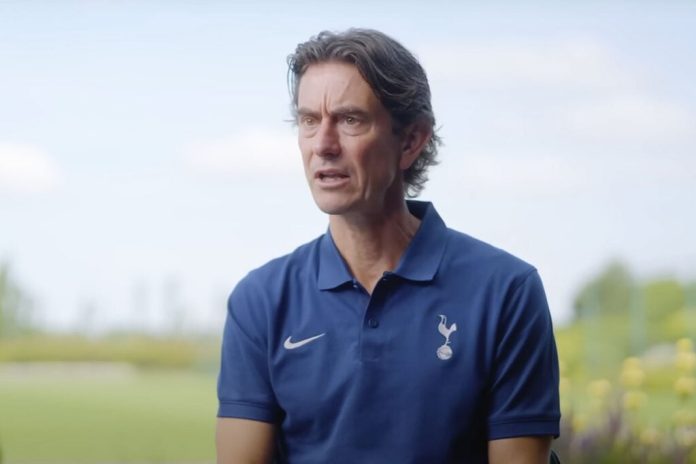Thomas Frank has given each member of his coaching staff a clearly defined role so that they know what aspect of the side they are in charge of, and the Tottenham boss has given a detailed explanation of what those roles are.
There are some stark differences between Frank and his predecessor, Ange Postecoglou, not least the fact that the Dane is more pragmatic and tactically versatile than the Australian.
It appears that another big change is in the role definition that the new Spurs head coach has offered to his staff.
Postecoglou explained that he hired his assistants based on their fit with his vision and it was well documented that all aspects of play were integrated under the Australian and it was more of a combined effort by the whole staff.
However, it turns out that Frank is a much bigger believer in assigning one area that each of his assistants is solely responsible for.

Thomas Frank explains what each of his Tottenham coaches will work on
Thomas Frank’s full coaching staff was finalised by Tottenham earlier this week and the 51-year-old has now revealed to the supporters what each of them will be tasked with.
The Dane explained how responsibilities such as defensive and offensive organisation, player development, and assessing physical metrics of the players will be split among his assistants.
When asked what roles his staff will be doing individually, Frank told Tottenham’s official channel: “Let’s start with the three assistant coaches.
“Justin Cochrane, who came from Brentford and worked with me before, he’ll be in charge of the offensive part of the game and then some training planning and get that smooth and running.
“Then we’ve got Andreas Georgson from Man United, but also worked with him previously in Brentford. He will be the assistant coach but the main focus on set pieces, of restarts and some culture.
“Then we will have Matt Wells, who will be responsible for the defensive part of the game and also contributing to training. I think that the way they split the roles I think is really good and covers all the abilities we would like to have.
“Then we have added Cameron Campbell, who is the individual coach and big on how we develop the players.
“That was a big wish from both Johan [Lange] and I, it was something we talked about that we thought was crucial and I think not many clubs have actually nailed that. We tried in the past, I tried in the past, so hopefully we can take it to the next level.
“Then we’ve got Fabian Otte in as a goalkeeper coach. Really excited about him coming in, great experience in terms of working with some of the best goalkeepers in the world and hopefully they can help push the goalkeepers.
“And then finally, Chris Haslam, who is the head of performance first-team coach, which is, of course, the physical part of the football training and all that but also the link to everything. So I think we’ve got a very exciting group together.”
Frank explains the idea behind clearly defined roles for his coaches
Frank was asked about his decision to split coaching responsibilities for different aspects of the team’s performance, and he explained that it was done so that his staff would have clarity on exactly what they must be striving towards each day.
When asked if this is usually how he goes about assembling his staff, the new Tottenham boss responded: “Yeah, it is. I believe it’s very important to have a combination between clear role descriptions for the coaches so they know what they’re in charge of. So it’s not like, ‘okay what are we doing today?’
“So they know their roles, they know what they need to execute, they know what they need to be on top of, but also they need to be able to all help each other and help but make sure that their most important thing is the training out there is world-class.
“So we need to be with quality, intensity and focus, so that’s the main bit. So I think clarity is important for everyone.”
Have something to tell us about this article?
